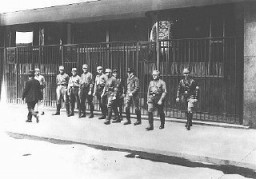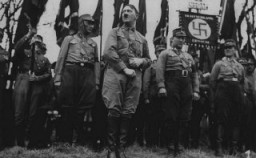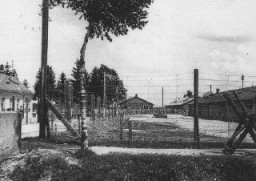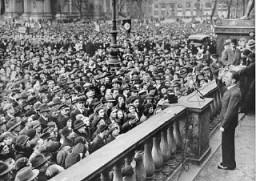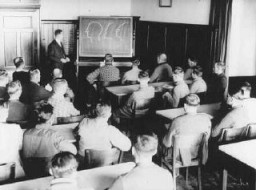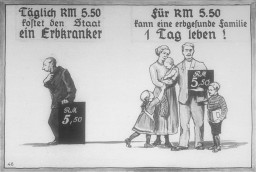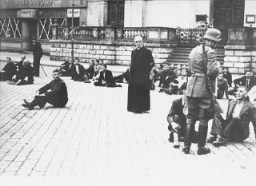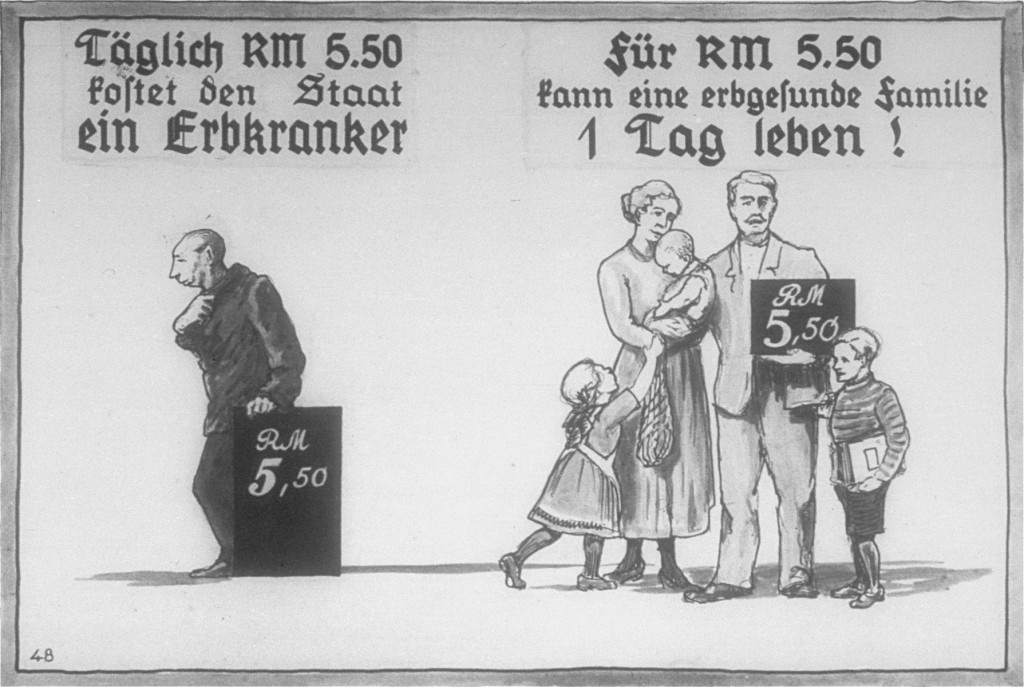
The Murder of People with Disabilities
The Nazis saw people with disabilities as an obstacle in their attempts to create an idealized "German race." In 1939, the Nazi regime began a systematic program to murder them.
The Murder of People with Disabilities Many Germans did not want to be reminded of individuals who did not measure up to their concept of a "master race" and were considered "unfit" or "handicapped." People with physical and mental disabilities were viewed as "useless" to society, a threat to Aryan genetic purity, and, ultimately, "unworthy of life." At the beginning of World War II, individuals with mental or physical disabilities were targeted for murder in what the Nazis called the "T-4," or "euthanasia," program.
The Euthanasia Program required the cooperation of many German doctors, who reviewed the medical files of patients in institutions to determine which individuals with disabilities should be killed. The doctors also supervised the actual killings. Doomed patients were transferred to six institutions in Germany and Austria, where they were killed in specially constructed gas chambers. Infants and small children with disabilities were also killed by injection with a deadly dose of drugs or by starvation. The bodies of the victims were burned in large ovens called crematoria.
Despite public protests in 1941, the Nazi leadership continued this program in secret throughout the war. About 200,000 people with disabilities were murdered between 1940 and 1945.
The T-4 program became the model for the mass murder of Jews, Roma (Gypsies), and others in camps equipped with gas chambers that the Nazis would open in 1941 and 1942. The program also served as a training ground for SS members who manned these camps.
Key Dates
October 1939
Hitler authorizes killing of the impaired
Adolf Hitler authorizes the beginning of the Euthanasia Program—the systematic killing of those Germans whom the Nazis deem "unworthy of life." The order is backdated to the beginning of the war (September 1, 1939). At first, doctors and staff in hospitals are encouraged to neglect patients. Thus, patients die of starvation and diseases. Later, groups of "consultants" visit hospitals and decide who will die. Those patients are sent to various "euthanasia" killing centers in Greater Germany and killed by lethal injection or in gas chambers.
August 3, 1941
Catholic bishop denounces Euthanasia Program
By 1941, the supposedly secret Euthanasia Program is generally known about in Germany. Bishop Clemens August Graf von Galen of Muenster denounces the killings in a public sermon on August 3, 1941. Other public figures and clergy will also raise objections to the killings.
August 24, 1941
Hitler officially orders end to "euthanasia" killings
Mounting public criticism of the "euthanasia" killings prompts Adolf Hitler to order the end of the program. Gas chambers in the various "euthanasia" killing centers are dismantled. By this time, about 70,000 German and Austrian physically or mentally impaired patients have been killed. Although the Euthanasia Program is officially ended, the killing of physically or mentally impaired people continues in secret in individual cases.
